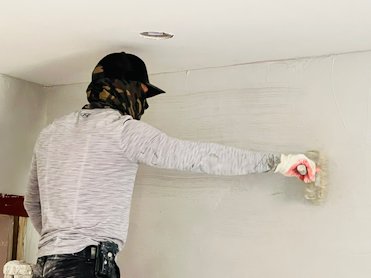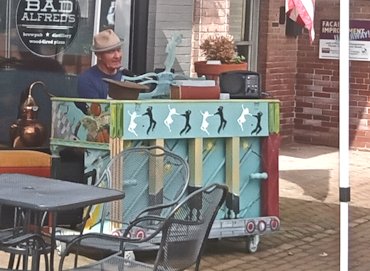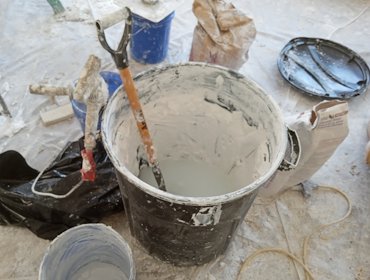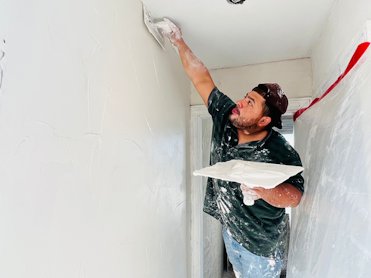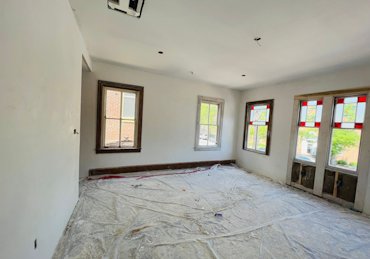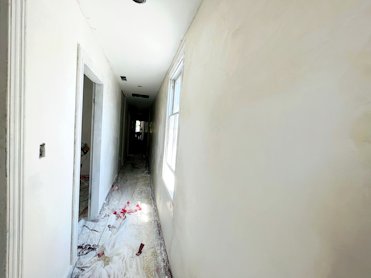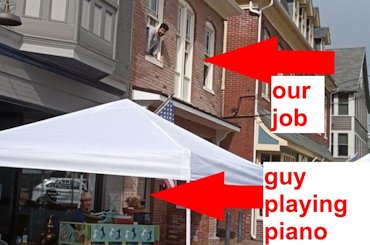
Historic plaster restored
in Chestertown, Maryland
Here's a video tour of our plaster job:
Fortunately, we didn't have to do any ceilings. The plaster was historically correct because the ceilings had been replaced with drywall over the years due to roof leaks.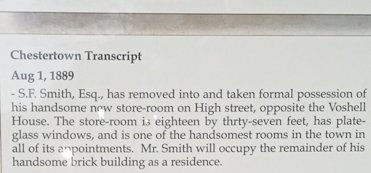
The building was built by Frank Smith. His store was on the first floor, and he lived upstairs. The building was started about 1880 and finished in 1889.

A picture from 1910. The building by then was Bramble's harness shop.

An artist's mural of S. Frank Smith's grocery.
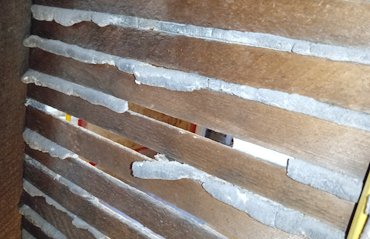
Old plaster was lime and fine sand. The sand (obviously) came from the banks of the Chester River. The lime (probably) was made from seashells.

Square nails were used up until just after 1900 when round nails took over.

Loose plaster was torn out and new metal lath put on over the wood lath with screws. The old bricks were painted with plaster weld.

Deep spots were filled in with brown mortar.
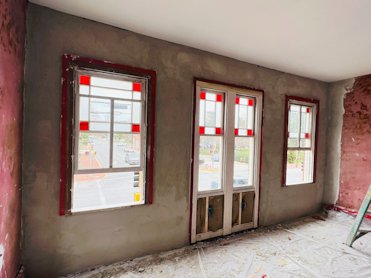
We used gypsum plaster and sand. (no lightweight aggregates)
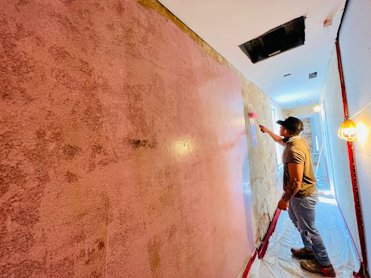
The old walls had never been painted, they had wallpaper that was removed. We painted the old walls with original Larsen's plaster weld.
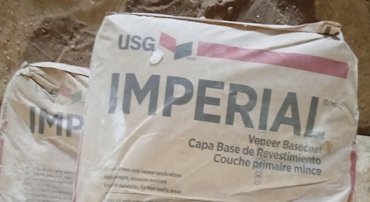
We coated the walls with veneer plaster basecoat. It gets amazingly hard for a thin coating.
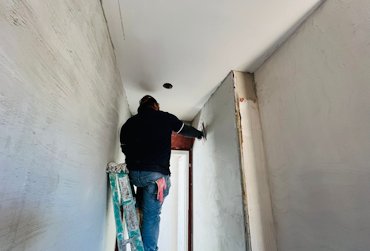
Veneer basecoat is troweled on.
